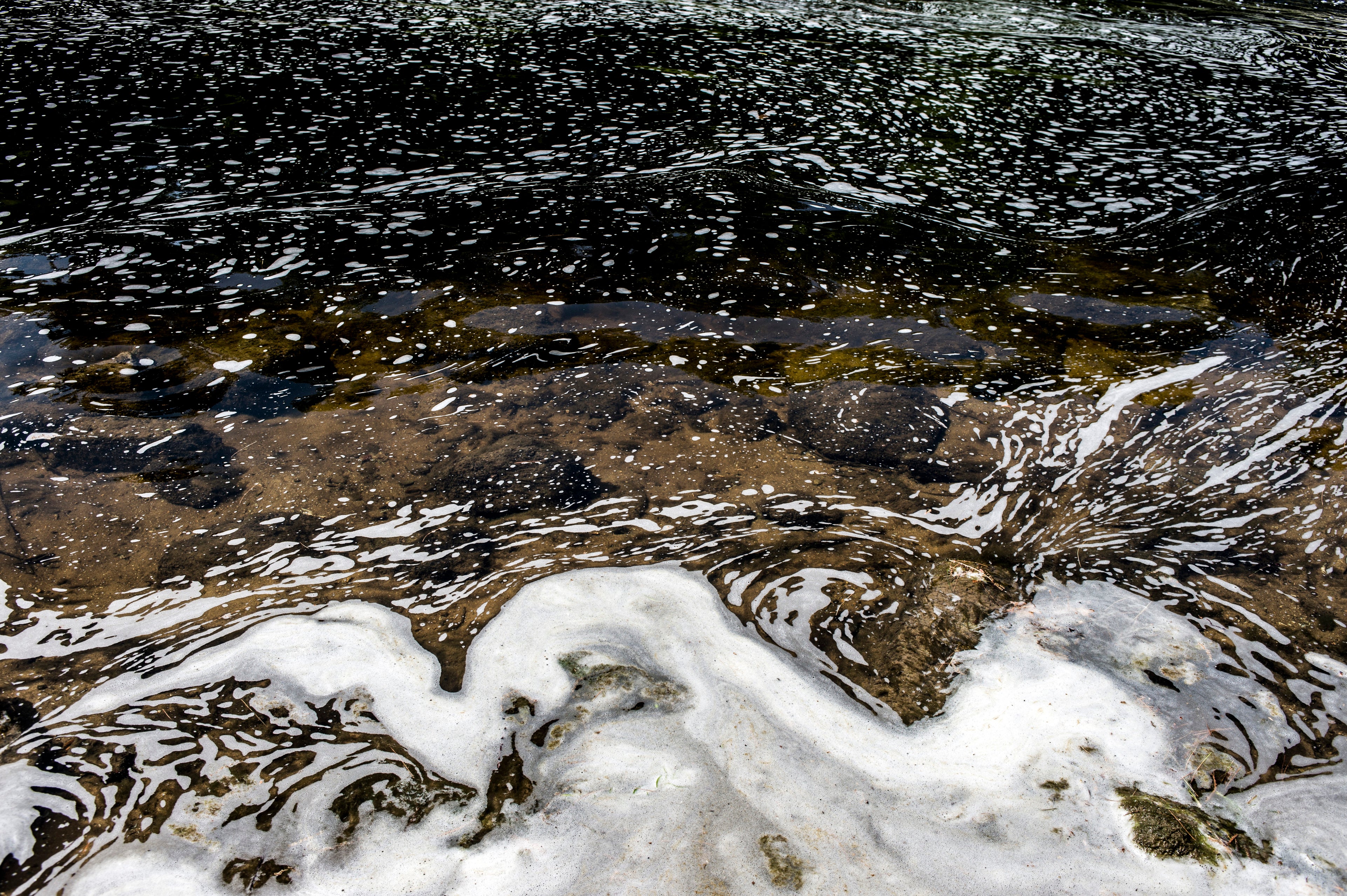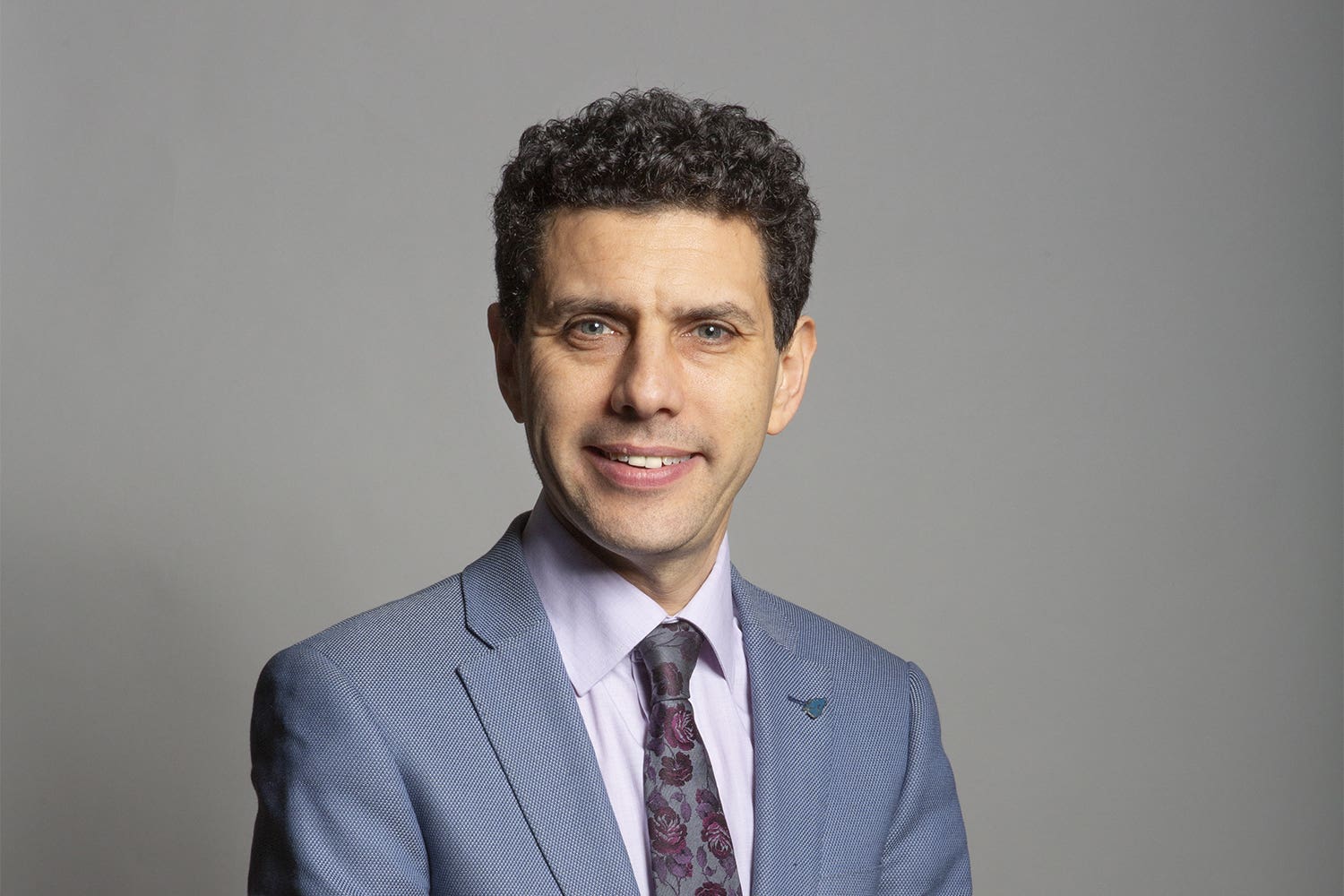UK politicians test positive for ‘forever chemicals’ in their system
Campaigners say ineffective regulation in the UK risks making chemical pollution ‘a hidden time bomb’

Political parties have been urged to toughen up on the “sleeping giant of pollution” after politicians tested positive for forever chemicals in their system.
Toxic chemicals, know as PFAS or ‘forever chemicals’, can harm people and wildlife.
The call comes after hair and blood analysis of a group of 17 politicians and environmental leaders shows they all tested positive for PFAS or “forever chemicals”.
Participants who gave samples included former Green Party MP Caroline Lucas, Labour’s Alex Sobel and Philip Dunne, former chairman of the parliamentary Environmental Audit Committee.
Also taking part in the tests were environmentalist Ben Goldsmith, businessman and food campaigner Henry Dimbleby, RSPB chief executive Beccy Speight and Wildlife Trusts chief executive Craig Bennett.
The “snapshot” analysis also revealed the presence of other harmful chemicals, including endocrine disruptors or “everywhere chemicals” and heavy metals including chromium and mercury.
Campaigners say ineffective regulation in the UK risks making chemical pollution “a hidden time bomb” for the environment and public health.
They warn regulation has not kept pace with the “explosion” in chemical products in everyday life, and the UK is falling behind on protections against toxic chemicals since leaving the EU.
The Wildlife and Countryside Link (WCL) coalition of environmental and nature groups, which led the research, is calling for bans on PFAS and endocrine disruptors for all but essential uses.

It is also calling for an end to delays on policies surrounding chemicals, cost-effective regulation, and establishing better monitoring systems to assess impacts on rivers, seas and soils.
Toxic chemicals should be regulated in groups and the potential for dangerous chemical cocktail impacts should be assessed before any new one is allowed on the market, it argues.
The chemicals are found in common consumer goods from plastic food packaging to waterproof clothing, toys, toiletries and cosmetics, and find their way into the environment, into drinking water and food – from fruit and fish.
They are harmful to people and wildlife, environmentalists warn, with the chemicals linked to human impacts from increased cancer risk to reduced fertility, disruptions to hormones and immune systems, and developmental issues.
No river in England is classified as being in good health, due to the presence of toxic chemicals, with chemical cocktails found in more than 1,600 UK river and groundwater sites.
Wildlife including birds of prey, otters, dolphins and insects are being harmed by the pollutants, a report from WCL warned.
The research found some chemicals were at very high levels in a number of samples.
Up to seven of the 13 PFAS – substances that are found in products ranging from non-stick frying pans to toilet roll – that were tested for were found in participants’ blood, while volumes of the chemicals that could potentially present an increased health risk were detected in half the samples.
Chromium, a heavy metal which can come from industrial processes and fossil fuel combustion, was found at particularly high levels – above international averages in all the hair samples tested, and in one case 13 times that level.
Mercury levels were also higher than international averages.
An average of nine endocrine disrupting “everywhere” chemicals, such as bisphenols used in food packaging, were detected in participants’ hair, with combined levels of pollutants found to be “above” normal for the majority of those taking part, WCL said.
Dr Richard Benwell, chief executive of Wildlife and Countryside Link, said: “We usually can’t see, smell or taste them, but toxic chemicals are a growing threat to the health of UK rivers, the food industry, public health and the natural world.
“The incredible scale of chemical contamination makes this the sleeping giant of pollution, with this research a startling reminder of the worrying level of chemical contamination in our bodies.
“The UK’s consumer and environmental protections were long ago outpaced by the massive rise in chemical pollution and now this country is falling further behind.
“The Government should take the most harmful chemicals off the shelves and out of our lives and stop the build-up of toxic chemicals in our environment,” he urged.
Mr Dimbleby warned: “Hazardous chemicals should never be an ingredient in our food, but UK consumers are facing an ever-growing diet of toxic chemicals, in the food we eat and the products in our homes.
“It is alarming to find out that I have PFAS levels, in particular, that might pose increased risks to my health.
“The fact is that many other people may be in the same situation without even knowing it.
“All political parties have a responsibility to get problem chemicals off the shelves and out of our waters and food.”
And Ms Lucas, who left Parliament as the country’s only Green Party MP in June, said: “For too long, corporate interests have been prioritised above having safe regulations to protect both people and planet.
“We now need politicians of all parties to recognise the seriousness of the threat and get tough on this crisis of chemical contamination.”
Join our commenting forum
Join thought-provoking conversations, follow other Independent readers and see their replies
Comments
Bookmark popover
Removed from bookmarks